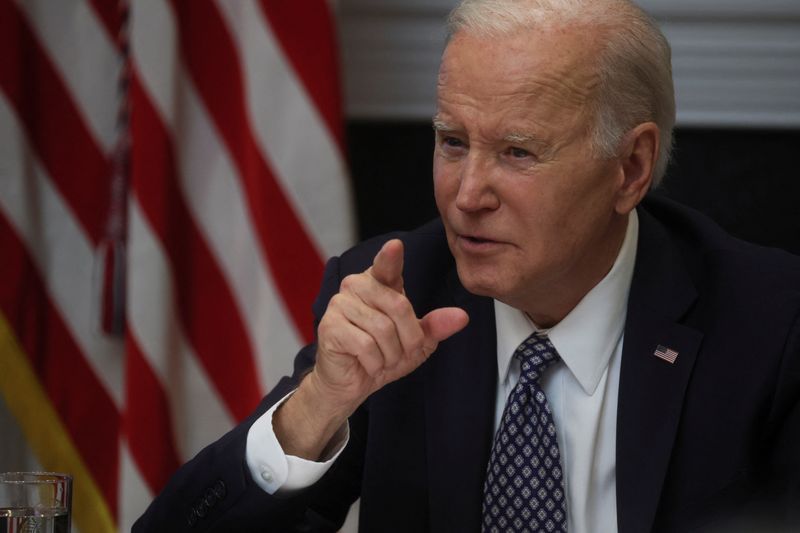Street Calls of the Week
Investing.com - As the US Congress approaches its holiday weekend, President Joe Biden and top Republican Kevin McCarthy seem to be making headway towards an agreement concerning the nation's debt ceiling. According to various media reports, a provisional arrangement would raise the limit for two years while placing restrictions on federal spending with exceptions made for military and veterans.
Despite earlier reassurances that discussions were advancing, investor concerns have grown. While there is no finalized deal yet, failure to meet obligations could lead to severe economic repercussions. The US Treasury has cautioned that by June 1st, the country may not possess sufficient funds to cover all expenses.
The potential agreement reported by Reuters and the New York Times allows both Republicans and Democrats to claim victory - with Republicans highlighting reduced spending and Democrats emphasizing protected domestic programs. In order to reach this compromise, it has been suggested that an expansion of the Internal Revenue Service (IRS), intended for auditing wealthy Americans, might be scaled back.
Negotiators are reportedly closing in on a solution that would impose strict caps on non-military or veterans-related spending while increasing the debt limit for two years. To secure this increase from $31.4tn (£25tn), Republicans seek cuts in government programs.
President Biden acknowledged divergent visions between parties but emphasized their shared belief that defaulting was not an option. Meanwhile, Mr McCarthy indicated continuous negotiations despite unresolved issues: "We're gonna work 24/7 to try to make that happen." Rep Kevin Hern expressed optimism about reaching a deal by Friday afternoon.
While acknowledging neither side will get everything they desire, White House press secretary Karine Jean-Pierre confirmed recent talks had been fruitful amid market declines over several days.
Fitch Ratings placed America under "negative watch," signaling potential risks due in part to increased political polarization and weak governance. In the event of a deal this week, lawmakers would have 72 hours to review the bill before possibly voting early next week. To grant additional time for negotiations, Congress could also temporarily lift the debt cap.
